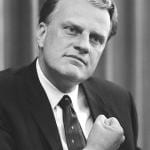I do not wish to argue that Catholicism is some panacea for racial resentment; that is obviously untrue. Rather, I am interested in exploring a question: why has, as some might expect, a loss of religiosity not correlated with a rise in tolerance, a spirit of welcoming?
There are some easy answers. Atheists need something to idolize: why not the nation? “Godless heathens” will do as “godless heathens” do. These, however, are insufficient. The Scandinavian countries are rather secular. And, while they are now exhibiting signs of xenophobia, they’re far from being wholly intolerant. It is clear that, like religious people, secular people may be divided and classified in any number of ways.
Some may give in to Nietzschean ressentiment. Others will be Canadian (so to speak). There is no simple line from belief to action, even if, we must confess, actions are conditioned by beliefs. Perhaps put more concretely: religious faith (or the lack thereof) is no simple indicator of one’s ethics. I’ve said it before and I’ll say it again: ideas don’t have consequences.
Put otherwise, human beings believe a lot of different, sometimes even contradictory, things at the same time. Few of us can lay claim to the aspiring consistency of Kant. We are animated by predispositions, childhood prejudices, adult over-reactions, and motivated reasoning. A Catholic may plainly see that Christ counsels uplifting the poor, may transparently note that God defends the widow and the orphan, and yet go on to support policies designed to keep widows and orphans in their place. Perhaps he does so because he believes, in some roundabout way, that Christianity requires small government; perhaps he does so because of a long-held dislike for the “other side” in American politics. The point is that adroit mental gymnastics are possible for any and all of us (and lest I be thought to be picking on the small-government conservative, let it be known that I think each of us—even those who try the hardest for self-transparency—do this).
I will go further: even those who claim to follow Freud, Lacan, and Foucault—harbingers of these ideas—enact them by refusing to recognize their own self-opacity. The Lacanian psychoanalyst must undergo analysis himself, but I’ve yet to meet a professed Lacanian who will reckon with what it means for everything and everyone he or she knows to be subject to cultural values and linguistic relationships that determine what they want and what they don’t want. We know with one mind and act with another.
Faith, however, does have a place in implanting these predispositions. He who grows up in a certain kind of evangelical church in the US may come to accept evolution later in life. But this acceptance may come with a burning hatred of “fundamentalism,” broadly defined. He may even turn to New Atheism, to Richard Dawkins and the crassest forms of unbelief. All of this, of course—the intensity and ire—is a manifestation of that upbringing. Why hate faith so much if your own childhood religion weren’t so facile?
Similarly, those who remain in certain denominations are shaped by them. The person who stays in that same evangelical church may carry with him or her a predisposition to distrust governmental authorities, may bear around certain ideas about guns, may even have their entire notion of “personhood” formed by this faith. And, were they to leave, it is not unlikely specters of these ideas would remain—silent, shifty, nevertheless present.













